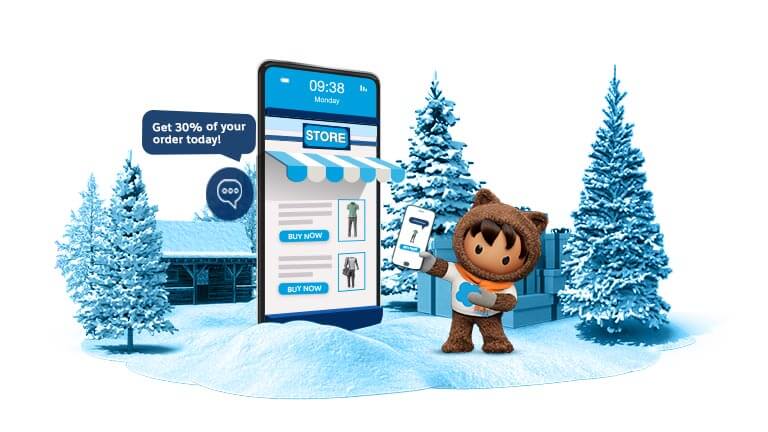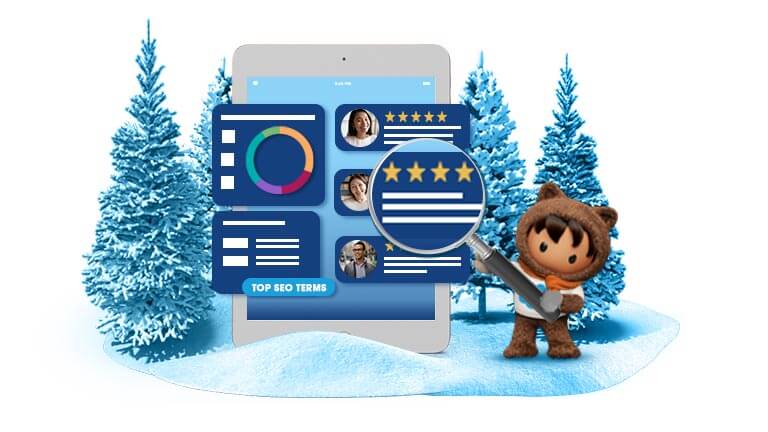Chapter 4: Refine holiday messaging and promotions to match the extraordinary moment
Use early Prime Day momentum and strike the right tone with shoppers during an unprecedented holiday season.
TIME TO READ: 5 MINUTES

With Prime Day slated for October instead of July this year, it will mark the new start to the holiday shopping season. Successful retailers will be ready to ride Amazon’s coattails and continue momentum and sales through the end of the year. But every shopper interaction has to be just right. When it comes to holiday communications, extra empathy goes a long way. However, that doesn’t mean you should abandon the magic and joy of the holiday season in your messaging. Here’s how to strike the perfect balance.
Listen to your shoppers
Monitor consumer sentiment across social media, ecommerce, and feedback channels. Use listening tools to analyse behavior and demand shifts on an ongoing basis as things change rapidly. Partner with social media micro influencers to authentically showcase your merchandise and bring your holiday products to new, highly engaged audiences.
Reconsider your promotion strategy
In March 2020, the average discount rate increased 29%, a benchmark typically reserved for Cyber Week. As retailers enter into an unpredictable season, the right items at the right price will matter to shoppers. At the same time, don’t play discount chicken. Use AI to deliver the best product sets. Shoppers who click on a personalised product recommendation have a 26% higher average order value.
Shoppers who click on a personalised product recommendation have a 26% higher average order value
Stay sensitive to the current situation
A portion of shoppers may not be able to spend as much money this year due to unemployment. Use AI to promote value options during online shopping sessions in these instances. Strike a balance of holiday messaging to fill the gap in this unique shopping year. Provide regular messaging around policy changes and steps to protect shoppers as well.
Recreate holiday magic with dedicated pages
Help marketers and merchandisers create and manage campaign and category landing pages with a drag-and-drop visual editor. Front-end developers create customised, brand-rich templates based on a set of references and guidelines. Marketers and merchandisers design, schedule, and publish new holiday pages easily. They can build pages with reusable components from other pages on their own — without designing from scratch — and preview changes across devices, personas, schedules, or locales and make adjustments in real time.
Ensure there isn’t any overlap between existing metadata and holiday queries. After you launch your holiday pages, redirect shoppers to your dedicated holiday content.
Revisit your SEO strategy
Gain deeper insights into search trends, emerging keywords, and search intent by device with open tools such as Google Trends and AnswerThePublic. Understand what people were searching for during stay-at-home orders, such as athleisure clothing, in addition to typical holiday searches. Analyse these findings along with your top 50 terms from last year. Update your target keyword list accordingly.
Build new audience segments
Salesforce research conducted in the U.S. in March showed the diversity in shopping behaviour across different regions. Build segments around demographic information, purchase history, and channel preferences. Test special offers, creative elements, and content to see what resonates. Explore Salesforce’s Snapshot Research Series to understand how preferences are changing this year.
Optimise digital advertising
Review ad performance over the course of the pandemic. What resonated with shoppers in the beginning? What’s resonating now? Marry these insights with your holiday strategy. Implement intelligent ads, which use AI to analyse commerce insights, and deploy personalised ads based on product browsing history.
Discover how a little extra personalisation in shopper marketing goes a long way with Marketing Cloud.
Chapters

On-demand Webinar
Leading Through Change for Commerce with Dawn Foods

Blog
We Are All Moving Forward. Prepare Your Business for Industry 4.0

Guide
The How-to Guide for Bringing Your Brand and Consumers Together
More Resources

GUIDE
Welcome to Work.com
Customer and employee priorities have changed. You must adopt clear safety standards. Manage workplace readiness. And work to earn the trust of the people you serve. Work.com brings together the products and guidance you need to make it happen.

EBOOK
Covid-19 Response Playbook
Use this versatile framework to stabilise your business, reopen your workplace, and accelerate change to grow in the next normal.

Data Resource
COVID-19 Data Hub
Access and analyse the latest, trusted COVID-19 global data from community experts to help you and your organisation make decisions confidently.





